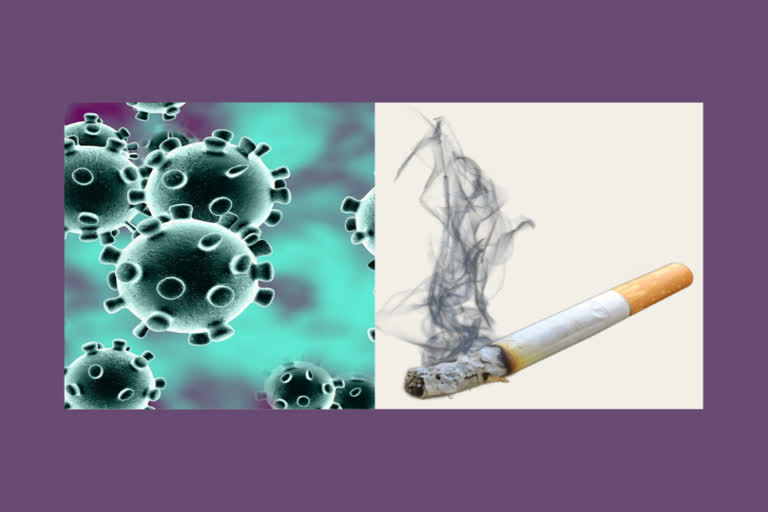Smokers could be living on the edge of contracting COVID-19 infection, according to a study by scientists at the Indian Institute of Technology (IIT), Jodhpur, exploring the neuroinvasive nature of the deadly Coronavirus.
The study also rings warning bells for asymptomatic carriers of COVID-19 with anosmia (loss of smell) and ageusia (loss of taste) to self-quarantine themselves as soon as they feel these symptoms and consult specialists before they turn into carriers.
According to the study titled "Neurological insights of COVID-19 pandemic" published in renowned international journal published by American Chemical Society (ACS), loss of smell and taste of infected patients makes their entire Central Nervous System (CNS) and the underlying structures in the brain more prone to viral infection with devastating effects.
Also Read: HCARD, a robot, to assist frontline COVID-19 healthcare warriors
The study led by Surajit Ghosh, professor at IIT Jodhpur, has pointed out that Coronavirus is known to interact with a specific human receptor known as hACE2 (Human Angiotensin-Converting Enzyme-2) which also happens to be the entry point of the virus and has an almost ubiquitous presence in most human organs ranging from lung to nasal mucosa. The brain is also known to express this receptor.
"The likeliness of COVID-19 patients to contract neurological infections can be exacerbated by secondary factors like smoking. According to a pilot study, smoking can enhance the chances of contracting COVID-19 based neuroinfections due to the functional interactions between human receptor and nicotinic receptor," Ghosh said.
Also Read: Men are more than twice as likely to die from COVID-19
"The same study reports that due to the coexpression of human receptor and nicotinic receptor in many cells, there exists a functional link between them. So, when smokers smoke, it augments the expression of the hACE2 due to the nicotine stimulation," he added.
The team has suggested brain autopsies of COVID-19 infected patients and analysis of their cerebrospinal fluid."While performing autopsies on brains of COVID-19 patients, it would be wise to conduct smoker versus nonsmoker based analysis as this will help to shed light on smoking being an additional risk factor in COVID-19 patients along with age and already existing ailments," the study said.
The researchers have attributed the loss of smell or taste to the fact that nose and mouth both are very important entry points of the virus, which then may be slowly making its way to the olfactory bulb using the neurons of the olfactory mucosa.
"The olfactory bulb located in the forebrain is the structure that is chiefly responsible for the sense of smell. This explains the loss of smell associated with many asymptomatic carriers of COVID-19 and also may be exposing the CNS to viral infection," Ghosh said.
"A recently conducted study on brain scans (CT and MRI) of a patient infected by COVID-19 virus that shows a rare encephalopathy called ANE, which leads to brain dysfunction with seizures and mental disorientation. It indicates that in the presence of human ACE2 receptors in nervous system, the brain may be infected by the virus through olfactory bulbs and also through other peripheral nerve terminals or simply blood circulation and may breach the blood-brain barrier to innervate and attack the system.
Also Read: COVID-19: 8 people can participate in WhatsApp video and voice call
"The virus may also completely destroy the medulla oblongata of the hindbrain, which regulates breathing, heart, and blood vessel function, he added. Around the world, confirmed infections of Coronavirus stood at more than 3.1 million - including 1 million in the US - and the confirmed global death toll topped 217,000, according to a tally by Johns Hopkins University.
(Inputs from PTI)



